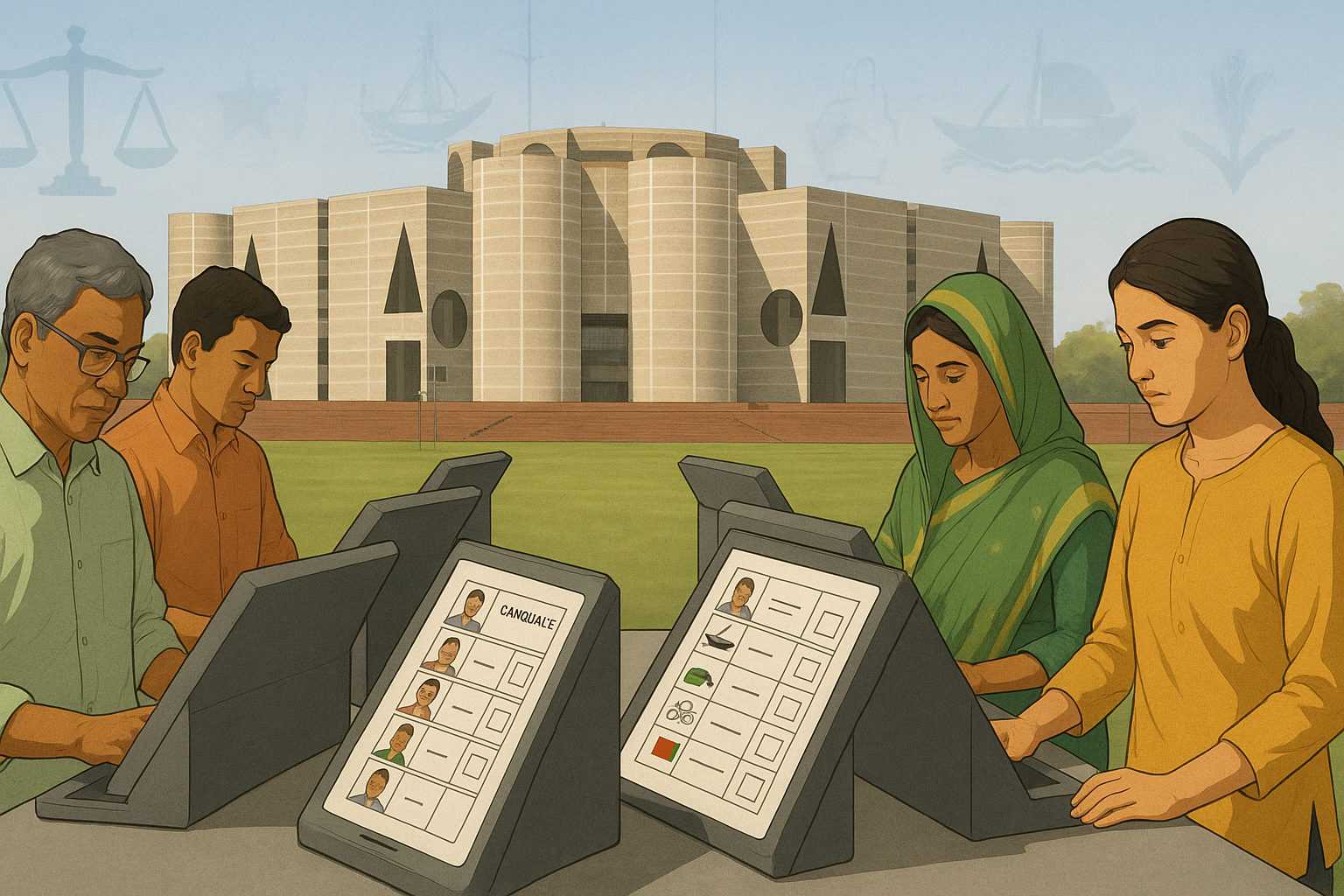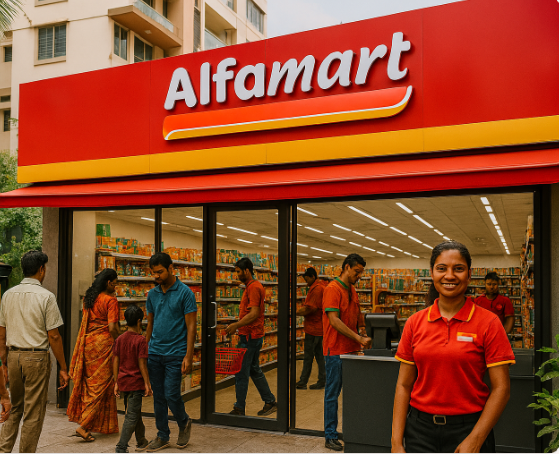Alfamart Enters Bangladesh Market
Indonesian retail giant Alfamart has officially made its entry into Bangladesh through a high-profile joint venture with Kazi Farms Group and Japan’s Mitsubishi Corporation. The $120 million investment plan, slated over two phases, aims to bring a new era of convenience retail to Bangladeshi consumers.
This development is poised to transform the Fast-Moving Consumer Goods (FMCG) retail landscape in Bangladesh, which until now has been highly fragmented and dominated by small neighborhood shops. The new venture is expected to introduce modern retail practices, advanced logistics, and digital inventory systems into local supply chains.
Structure of the Joint Venture & Investment Strategy
The joint venture will begin with a $50 million foreign investment in the first phase, followed by an additional $70 million in the second. These funds will be deployed across store rollout, warehouse infrastructure, logistics, and technology integration.
The initial stores are expected to open in Dhaka and Chattogram, located in high-traffic residential and commercial zones. Over time, the plan is to expand into district towns and semi-urban areas, thereby creating a nationwide retail footprint.
Kazi Farms director Kazi Zahin Hasan has emphasized that one motivating factor in the partnership was Alfamart’s IT-driven retail system. The system tracks product sales and inventory in real time at each outlet, ensuring efficient stock management and minimizing wastage.
Why Bangladeshi Retail Needs Alfamart
The Bangladesh retail sector has evolved rapidly. Urbanization, rising incomes, and changing consumer behavior have increased demand for more organized retail formats. The FMCG and organized retail market in Bangladesh is now valued at over Tk 80,000 crore, growing at 10–12 percent annually.
Despite that growth, much of the market is served by small, unbranded local shops with limited inventory, no digital systems, and fragmented supply chains. With Alfamart entering, shoppers could gain access to higher product variety, consistent quality, better hygienic standards, and transparent pricing.
For local manufacturers, the Alfamart network could provide direct access to retail shelves, reducing the layers of intermediaries and improving margins. The joint venture may also enable collaborations with local FMCG brands, integrating them into modern retail pipelines.
Alfamart’s Global Footprint & Role of Partners
Alfamart is already a well-established name in Southeast Asia. It operates around 27,000 retail outlets in Indonesia and the Philippines, employing over 150,000 people. Around 40 percent of its workforce are women, reflecting its inclusive employment policies.
In this Bangladesh venture, Mitsubishi Corporation plays a key role, leveraging its experience in global retail chains like Lawson and its deep regional networks. Mitsubishi’s involvement helps Mediate relationships, coordinate investments, and import best practices in retail operations.
For Kazi Farms, the partnership is a strategic diversification beyond their core businesses in poultry, feed, frozen foods, and satellite TV. Their local knowledge, distribution networks, and understanding of the consumer market make them an ideal local partner for Alfamart’s entry.
Likely Challenges & Roadblocks
While the Alfamart entry is ambitious, achieving success won’t be without obstacles. Some challenges include:
Infrastructure & Logistics: Building a robust cold chain, delivery fleet, and last-mile logistics in Bangladesh’s congested urban centers and rural terrains is a major task.
Competition: Existing retail chains like Shwapno, Meena Bazar, and Agora, along with hundreds of kirana shops, are entrenched. Alfamart must compete on convenience, price, and quality to win market share.
Consumer Habits: Many Bangladeshi consumers are accustomed to bargaining, credit purchases, or local shop relationships. Alfamart will need to adapt to local preferences and gain trust.
Regulations & Taxes: Import duties, local tastes, regulatory compliance, and taxation can hinder cost control, especially for imported goods or electronics.
Scalability: Rolling out aggressively while maintaining service quality will be a balancing act. Alfamart must ensure each outlet meets performance standards.
Expected Economic & Social Impact
If executed well, Alfamart’s entry could have transformative effects:
Job Creation: Thousands of jobs will emerge in store operations, logistics, supply chain, and support services. Many of these will be accessible to youth and women.
Consumer Benefits: Shoppers will likely enjoy a wider product range, fresher goods, consistent pricing, loyalty programs, and better hygiene than in many local shops.
Support for Local Brands: Local manufacturers in Bangladesh may benefit from direct shelf access, data-driven stocking, and reduced costs through bulk procurement.
Modern Retail Ecosystem: Alfamart may accelerate modernization across retail — forcing local shops to upgrade quality, adopt tech, or collaborate.
Tax & Infrastructure Gains: New stores bring more municipal revenue, property development, and interest in improving road access, power, and connectivity.
Strategy & Phased Rollout
The rollout will proceed in phases. First, Alfamart plans entry in Dhaka and Chattogram, paying attention to densely populated areas ideal for convenience retail. Then, it will expand into district towns and secondary cities.
Initially, stores will focus on essential FMCG: food, beverages, personal care, household items. Later, depending on demand, the range might broaden to include lifestyle, electronics, home goods, and more.
Each store will be integrated with real-time IT systems for inventory, pricing, and consumer analytics. The joint venture intends to build warehouses and logistics networks to support efficient restocking.
Outlook & What to Watch
As Alfamart enters Bangladesh, several indicators will be key to track:
The performance metrics of initial stores (sales, footfall, customer retention)
Speed and effectiveness of expansion into beyond urban centers
Synergies with local FMCG brands and incorporation of Bangladeshi products
Competitive responses from local retail chains and small shops
Consumer acceptance, local adaptation, and trust-building








